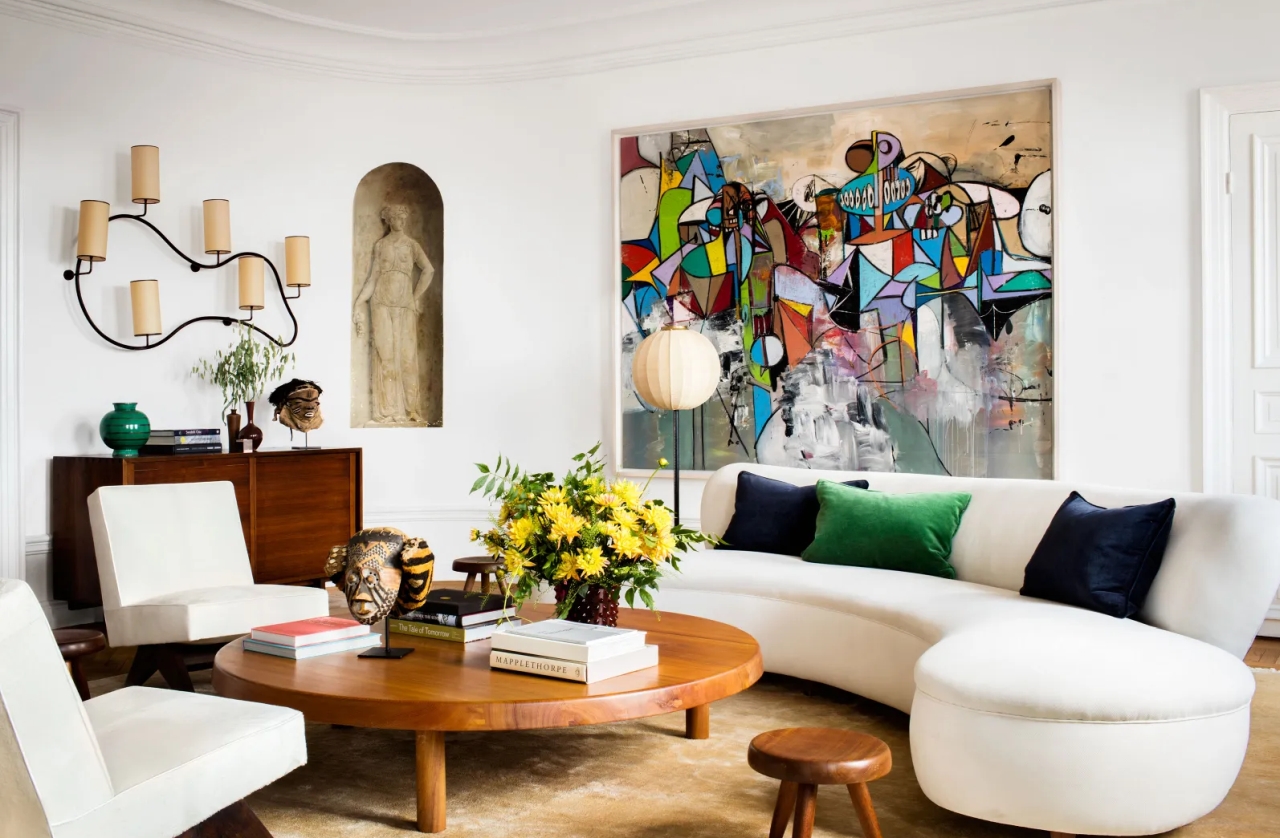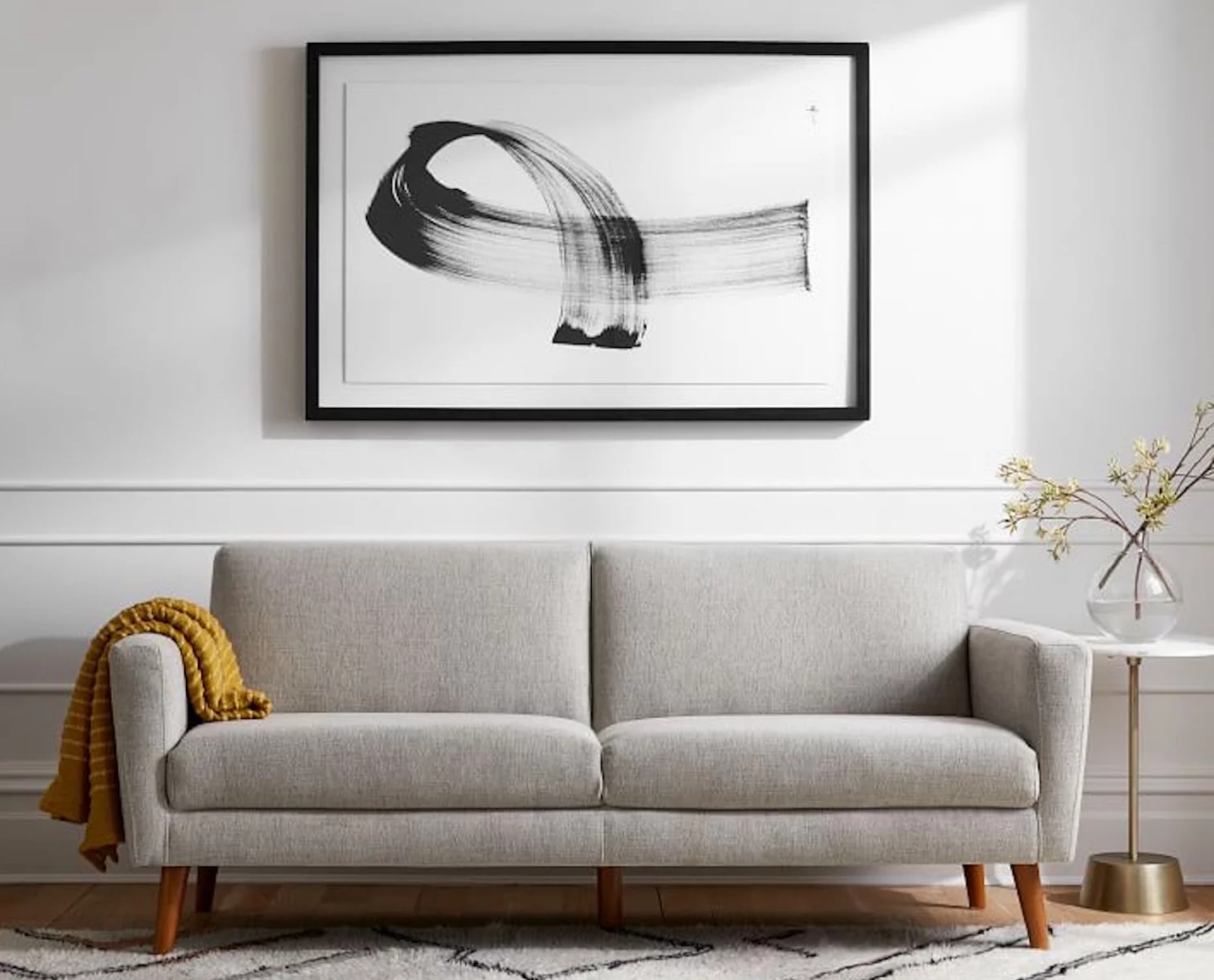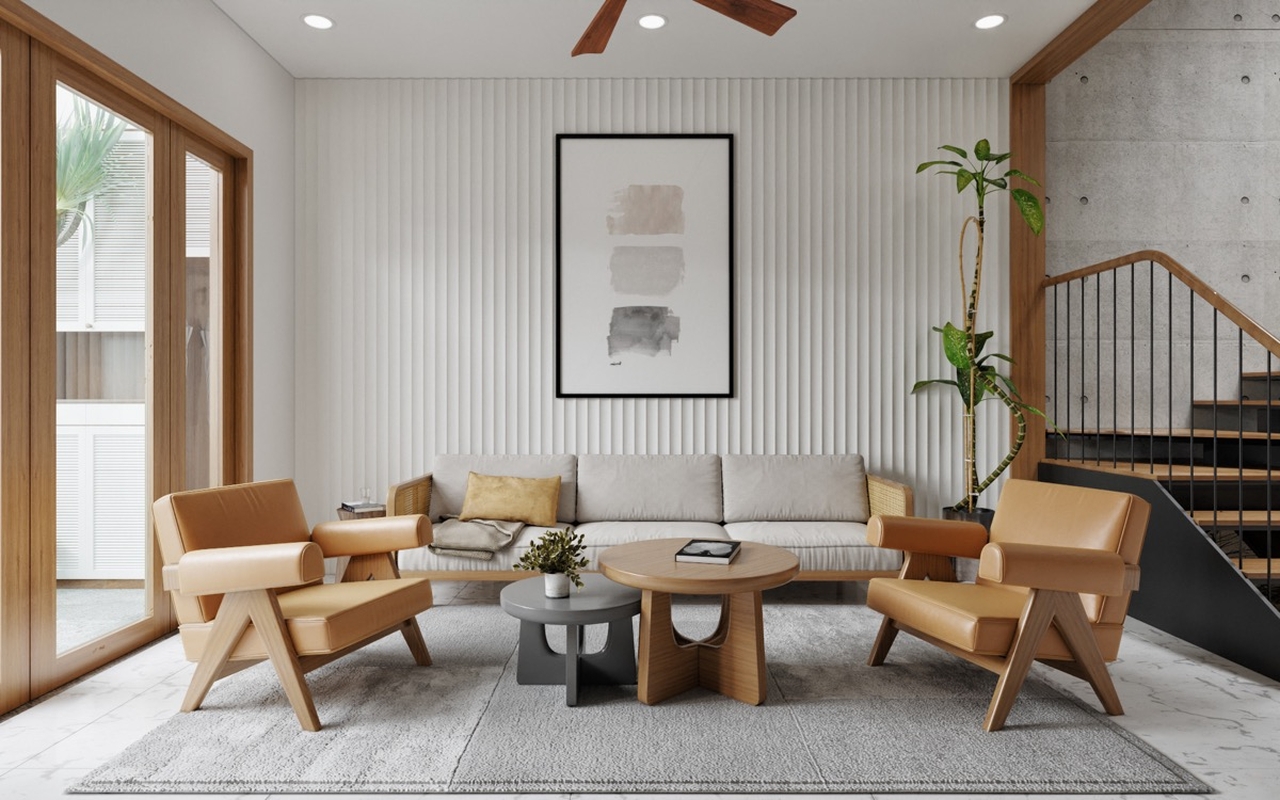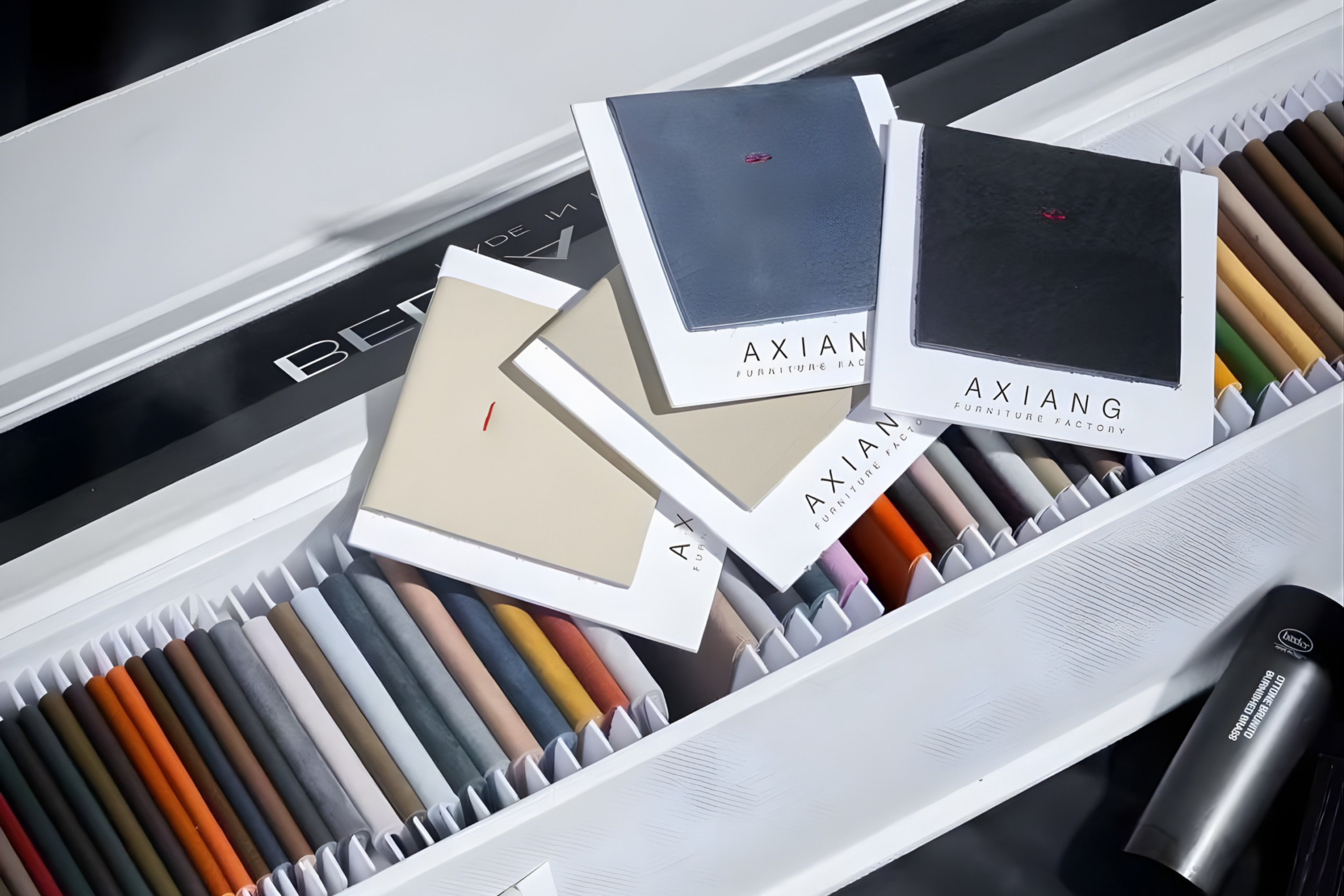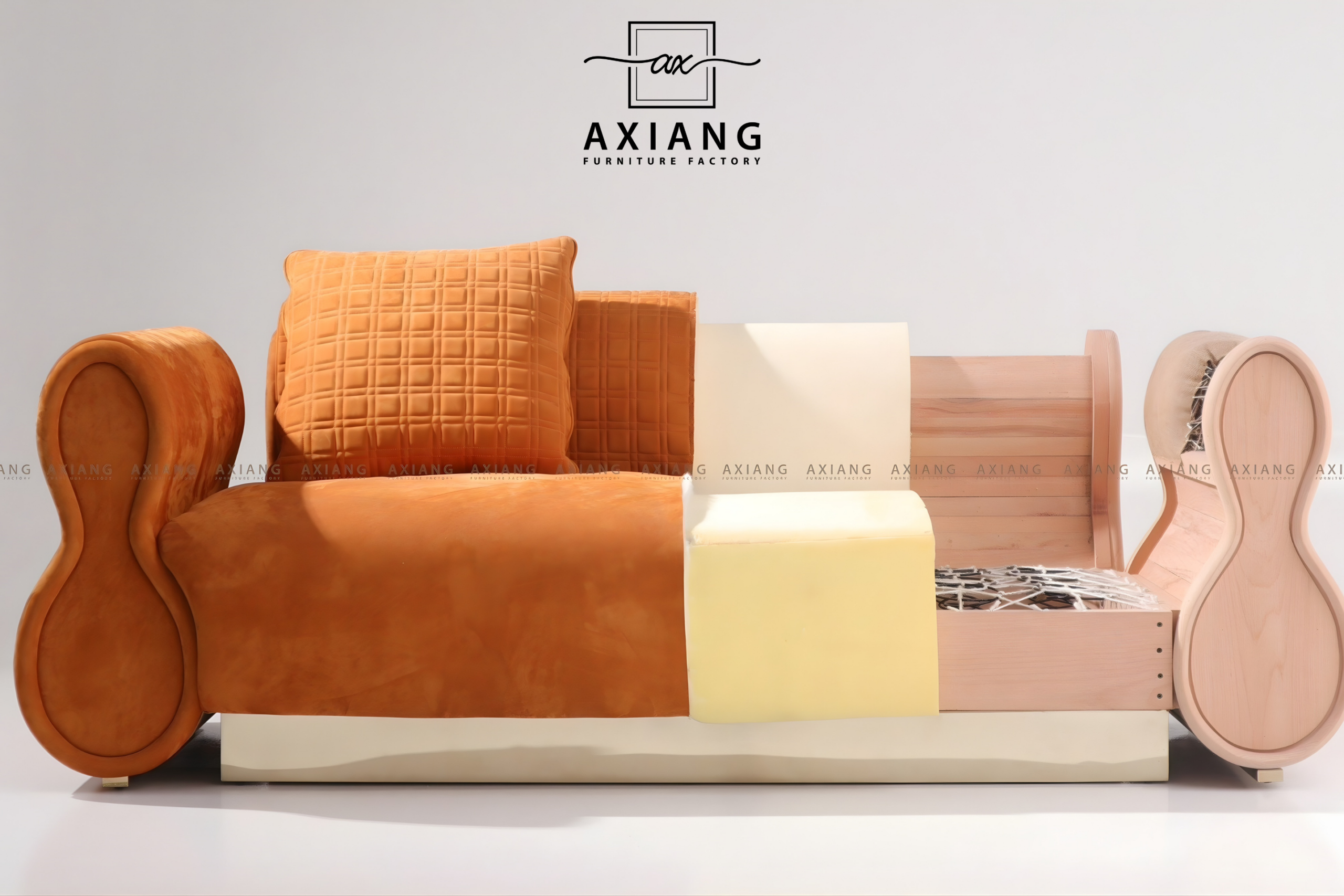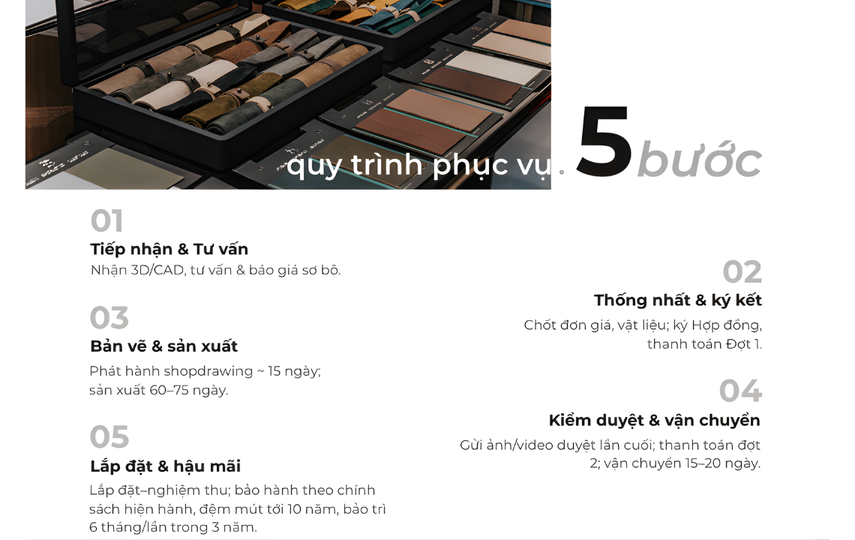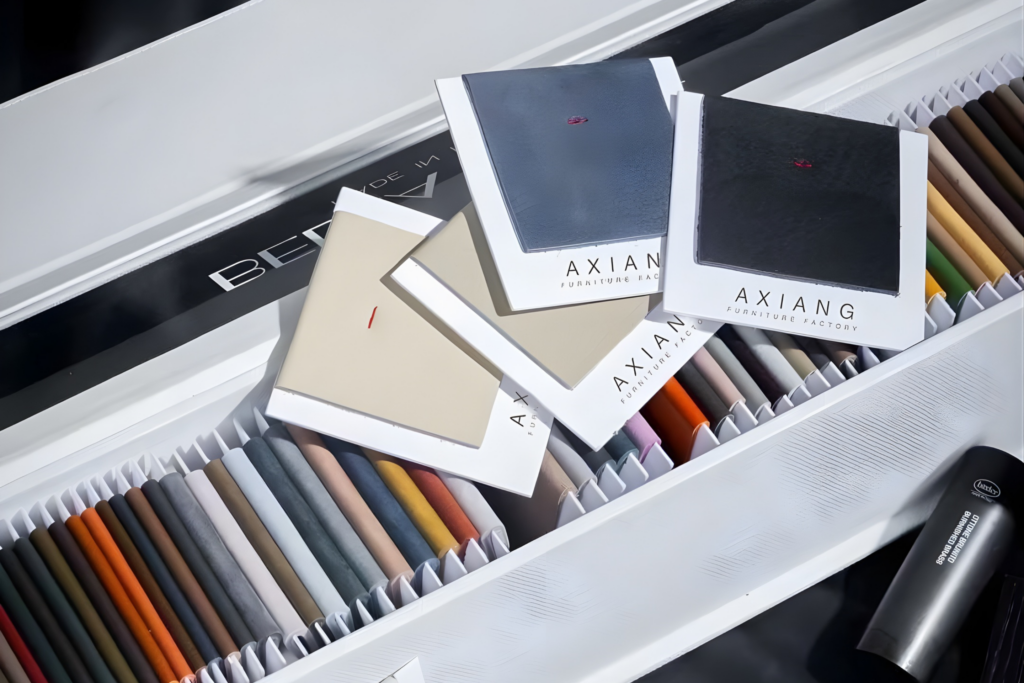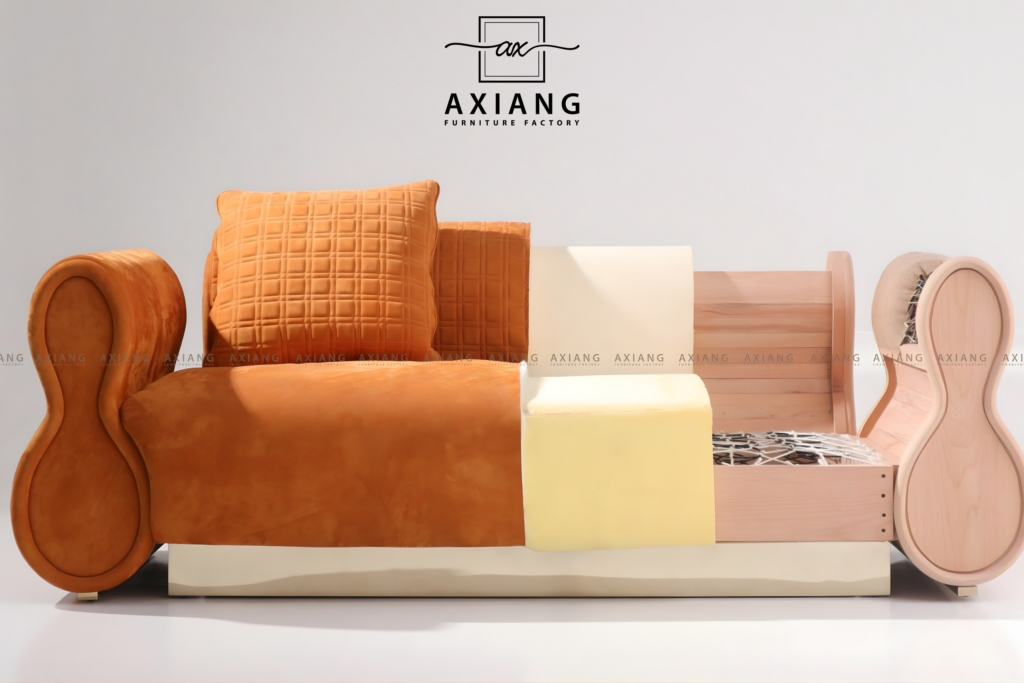Phong cách thiết kế nội thất hiện đại ra đời vào cuối thế kỷ 19 và kể từ đó đã nhiều lần định hình lại không gian sống của chúng ta. Phong cách này được đặc trưng bởi bảng màu trung tính, với nguyên tắc “hình thức theo sau chức năng”. Đây là phong cách trang trí gọn gàng, chú trọng vào các yếu tố thiết kế đơn giản như đường nét rõ ràng, góc vuông và vật liệu tự nhiên.
Phong cách hiện đại cũng sử dụng các chi tiết bằng kính và thép để tạo cảm giác thân thiện, đồng thời kết hợp các yếu tố cá nhân mới mẻ, nhấn mạnh tính logic và tính thực tiễn hơn là sự xa hoa trong trang trí. Phong cách này đã phổ biến trong nhà ở, văn phòng và không gian công cộng suốt nhiều thập kỷ qua.
Mặc dù không phù hợp với gu thẩm mỹ của tất cả mọi người, nhưng thiết kế nhà hiện đại lại là điểm cộng lớn đối với những người mua tiềm năng nhờ vào sự tối giản và tinh tế của nó.
Phong Cách Thiết Kế Nội Thất Hiện Đại Là Gì?
Là một phong cách trang trí nội thất phổ biến, thiết kế hiện đại được đặc trưng bởi bảng màu đơn sắc, các đường nét sắc sảo, cách tiếp cận trang trí tối giản, sử dụng vật liệu tự nhiên và tận dụng ánh sáng tự nhiên. Thiết kế hiện đại mang nét đặc trưng riêng, gắn liền với một phong trào thẩm mỹ mang tính lịch sử. Phong cách này tôn vinh sự kết hợp giữa vật liệu tự nhiên với các tông màu đất và không gian gọn gàng, thoáng đãng.
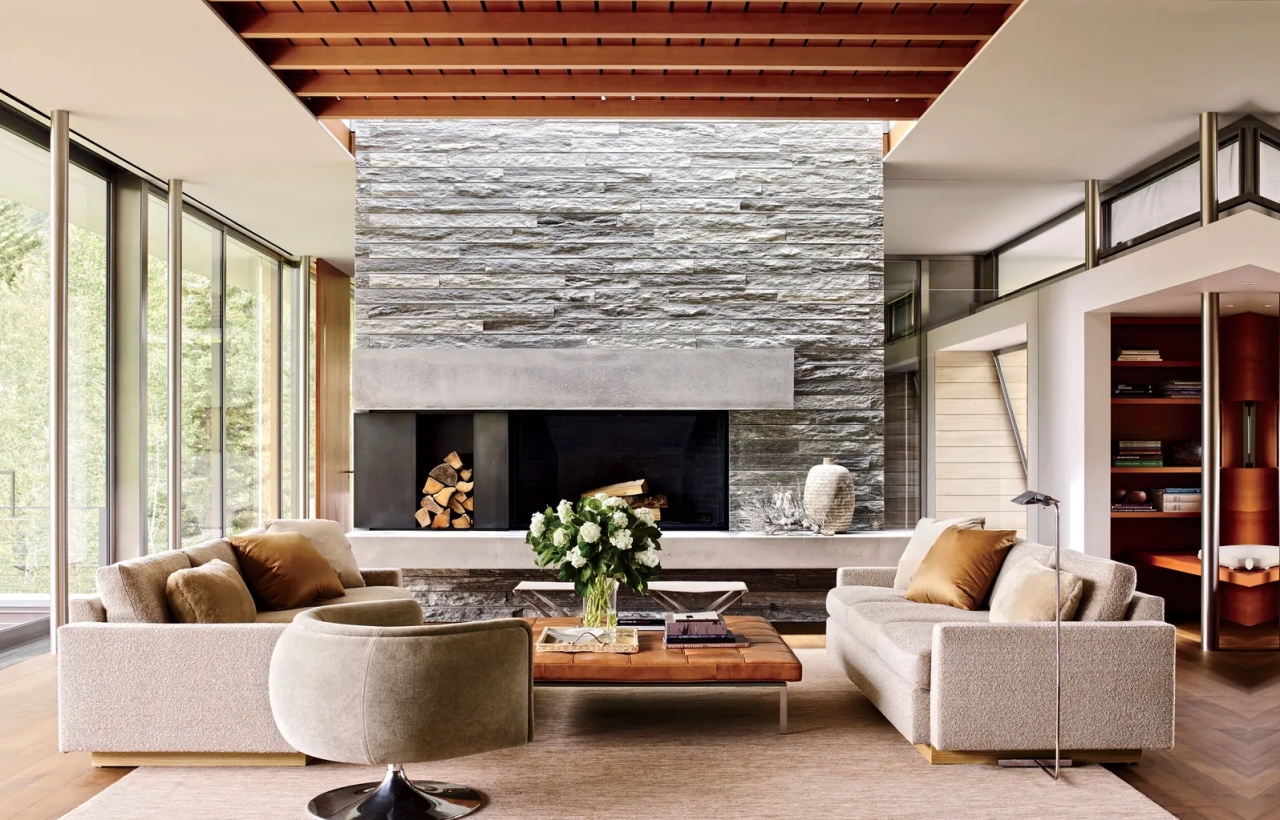
Thiết kế hiện đại là một phong cách gắn liền với một giai đoạn thời gian cụ thể, bắt nguồn vào đầu thế kỷ 20 khi xã hội bắt đầu chuyển mình sang thời kỳ công nghiệp hóa và thực sự trở nên phổ biến trong suốt nửa đầu thế kỷ này. Bắt nguồn từ chủ nghĩa hiện đại, phong cách hiện đại tập trung vào tư duy trừu tượng, tính công năng và các hình khối cơ bản. Phong cách này phản ánh ảnh hưởng của phong trào nghệ thuật hiện đại lên thiết kế nội thất, với một số đặc điểm cốt lõi.
Thiết kế nội thất hiện đại được xây dựng dựa trên những đường ngang và đường dọc mạnh mẽ. Các cột hình trụ cũng thường xuất hiện trong phong cách này. Chủ nghĩa hiện đại loại bỏ những chi tiết như vòm cong, cột trang trí cầu kỳ, cửa chớp hay bất kỳ yếu tố trang trí rườm rà nào – vốn phổ biến trong các thời kỳ trước chịu ảnh hưởng của chủ nghĩa hiện thực, lãng mạn và phục hưng. Phong cách này không chạy theo sự xa hoa mà thay thế bằng sự bất đối xứng và hình khối đơn giản.
Thiết Kế Nội Thất Hiện Đại và Đương Đại: Sự Khác Biệt
Thường bị nhầm lẫn và sử dụng thay thế cho thiết kế đương đại, thiết kế nhà hiện đại phát triển từ nghệ thuật trang trí vào cuối thế kỷ 19 và đầu thế kỷ 20. Nó đề cập đến một phong cách gắn liền với một giai đoạn lịch sử cụ thể; trong khi đó, thiết kế đương đại lại nói đến các xu hướng thiết kế mới và sáng tạo ở thời điểm hiện tại. Các nguyên tắc của phong cách hiện đại hầu như không thay đổi, trong khi thiết kế đương đại thì luôn thay đổi và phát triển theo thời gian.
Lịch Sử Của Thiết Kế Nhà Hiện Đại
Bắt đầu từ cuối thế kỷ 19, phong cách hiện đại đạt đến đỉnh cao vào những năm 1930. Mặc dù xu hướng thiết kế này dần suy giảm sau đó do sự xuất hiện của các trào lưu như Hậu hiện đại trong lĩnh vực thiết kế, phong cách hiện đại vẫn tồn tại và phát triển đến ngày nay.
“Hình thức phục vụ chức năng” là một trong những nguyên tắc quan trọng nhất của thiết kế hiện đại, tập trung vào việc tạo ra không gian thực tế và có chức năng hơn là các yếu tố thẩm mỹ hoặc trang trí cầu kỳ. Thời kỳ này chứng kiến sự ra đời của những ngôi nhà được thiết kế theo phong cách hiện đại với mặt bằng mở, cửa sổ kính lớn, các hình khối và họa tiết hình học, yếu tố tự nhiên, và các đường nét mượt mà, thẳng tắp — kết nối hài hòa giữa không gian bên trong và bên ngoài.
Phong cách thiết kế nội thất hiện đại có nguồn gốc từ Đức và Bắc Âu, thể hiện qua việc sử dụng các vật liệu tự nhiên như kim loại, kính, vinyl và ván ép. Nguồn gốc của thiết kế hiện đại có thể được truy về thiết kế Bauhaus của Đức và thiết kế Scandinavia. Bauhaus là một trường phái thiết kế và cũng là phong trào nghệ thuật xuất hiện vào đầu thế kỷ 20, mang đến các yếu tố tối giản mang tính chức năng và những thử nghiệm táo bạo về hình dạng.
Phong cách thiết kế này cũng chịu ảnh hưởng từ nghệ thuật hiện đại, vốn loại bỏ xu hướng tối đa hóa trong thiết kế thời Victoria để đề cao triết lý “hình thức gắn liền với công năng”. Các đặc điểm nổi bật bao gồm cửa sổ kéo dài từ sàn đến trần, không gian sống mở và mái bằng.
Đặc Điểm Của Phong Cách Nội Thất Hiện Đại
Thiết kế hiện đại là một làn gió mới với những yếu tố đặc trưng đơn giản trong thời đại mà không gian nội thất ngày càng thu nhỏ. Hãy tiếp tục đọc để hiểu rõ các đặc điểm chính giúp tạo nên phong cách thiết kế nội thất hiện đại.
Đường nét sạch sẽ và sắc bén
Nội thất hiện đại được đặc trưng bởi những đường nét sạch sẽ, thẳng tắp và ít trang trí. Phong cách này nhấn mạnh vào việc giảm bớt các đường cong và cạnh sắc nét. Thường xuyên để lộ các yếu tố cấu trúc như bê tông hoặc dầm. Đây là sự tôn vinh đóng góp của công nghiệp hóa đối với phong cách hiện đại. Thiết kế hiện đại không thiên về các vòm cong hay những đường cong xa hoa, mà thay vào đó là việc sử dụng nhiều đường ngang và dọc.
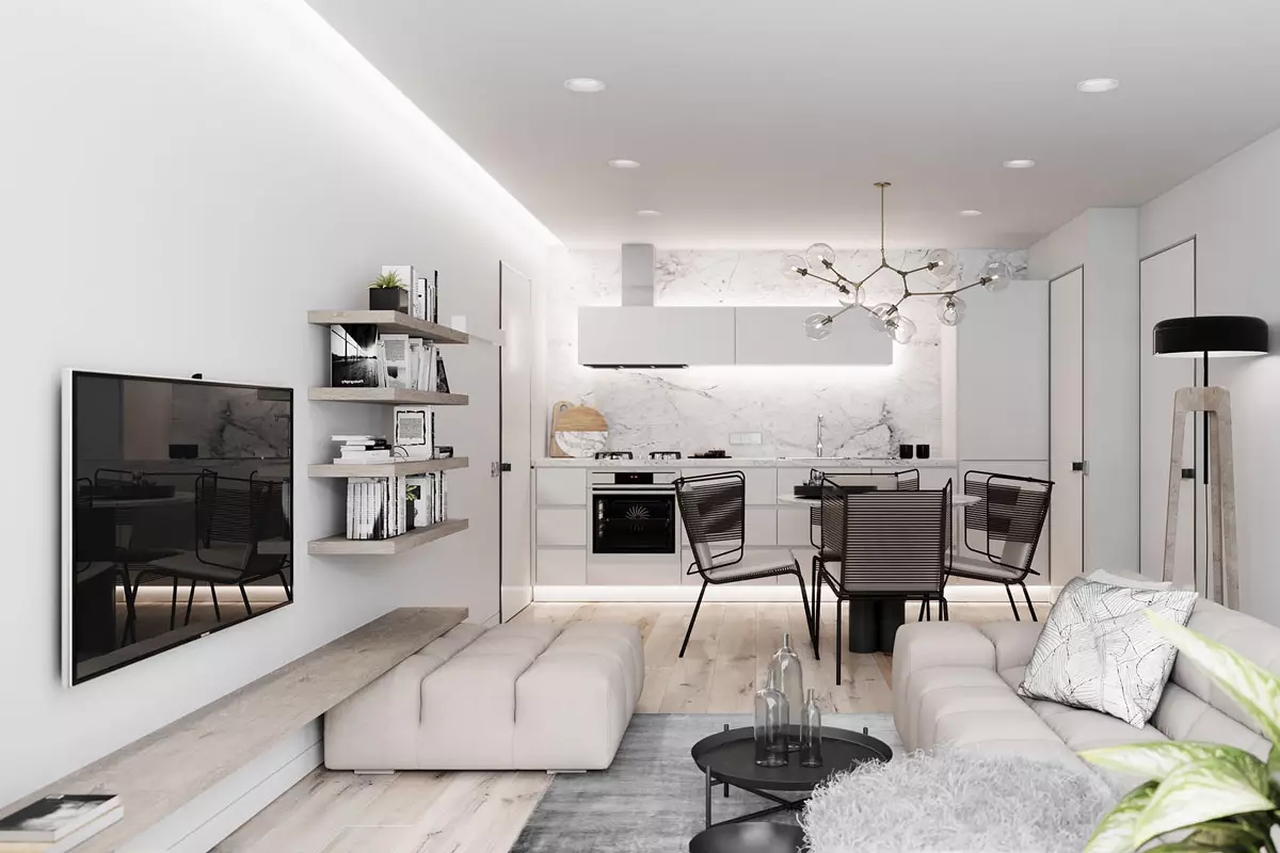
Tối giản
Nội thất hiện đại không có sự bừa bộn và không có những chi tiết thừa thãi. Phong cách này chú trọng vào tính năng hơn là thời trang, được lấy cảm hứng từ sự tối giản yên bình của thiết kế Scandinavian và sự tuân thủ nghiêm ngặt các yếu tố đơn giản. Phong cách này trở thành một liều thuốc giải cho những phong cách quá mức và xa hoa.
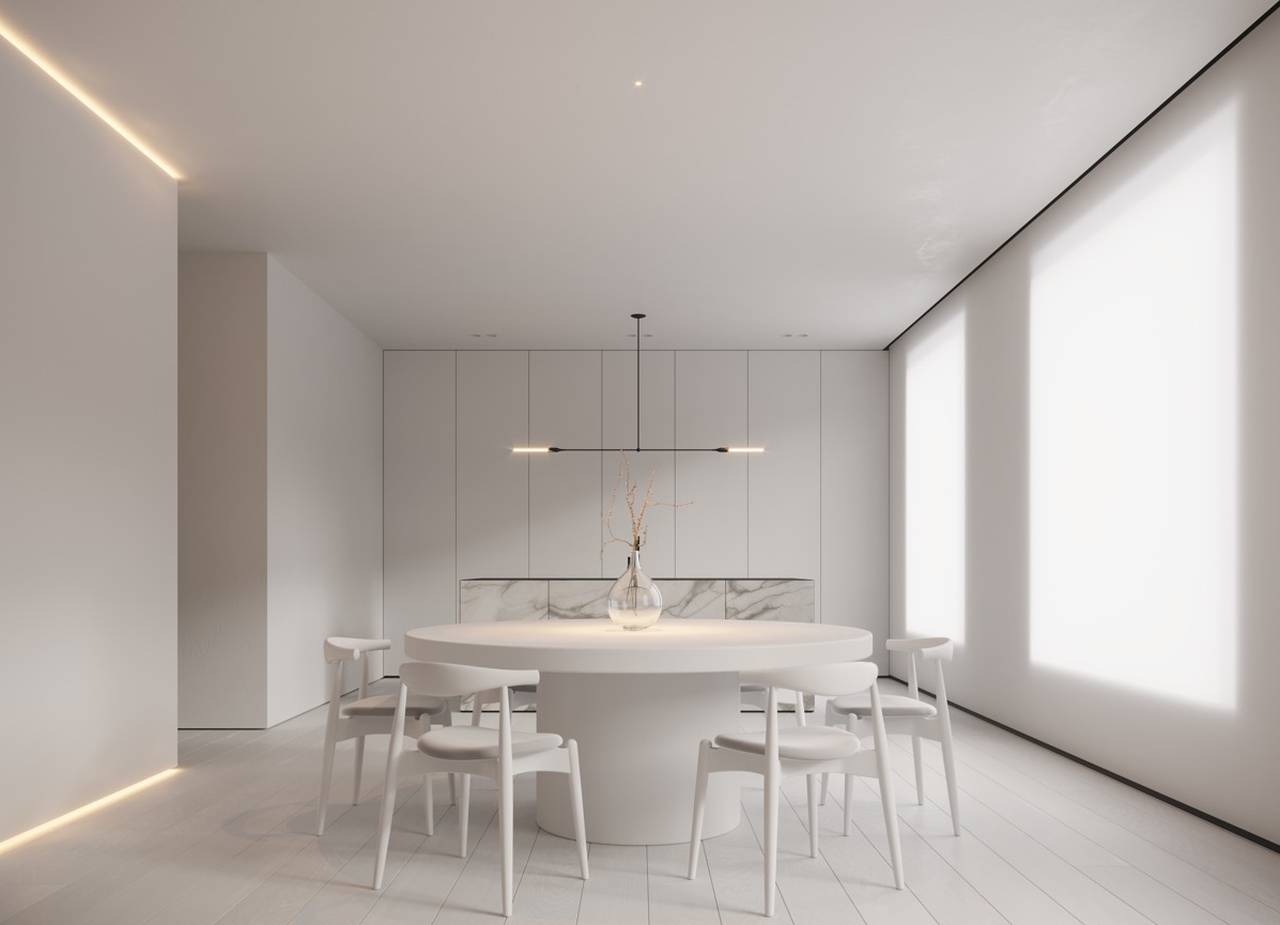
Bảng màu trung tính và đơn sắc
Bảng màu trung tính và đơn sắc không cầu kỳ và sử dụng các kết cấu cùng tông màu tự nhiên để thu hút sự chú ý vào những yếu tố kiến trúc đặc trưng của nội thất hiện đại. Nó có thể tạo ra một không gian thư giãn bằng cách sử dụng các màu tự nhiên, chưa qua xử lý của bê tông hoặc đá kết hợp với các tông sơn nhẹ nhàng như xám, trắng, be, đen và các tông màu pastel.
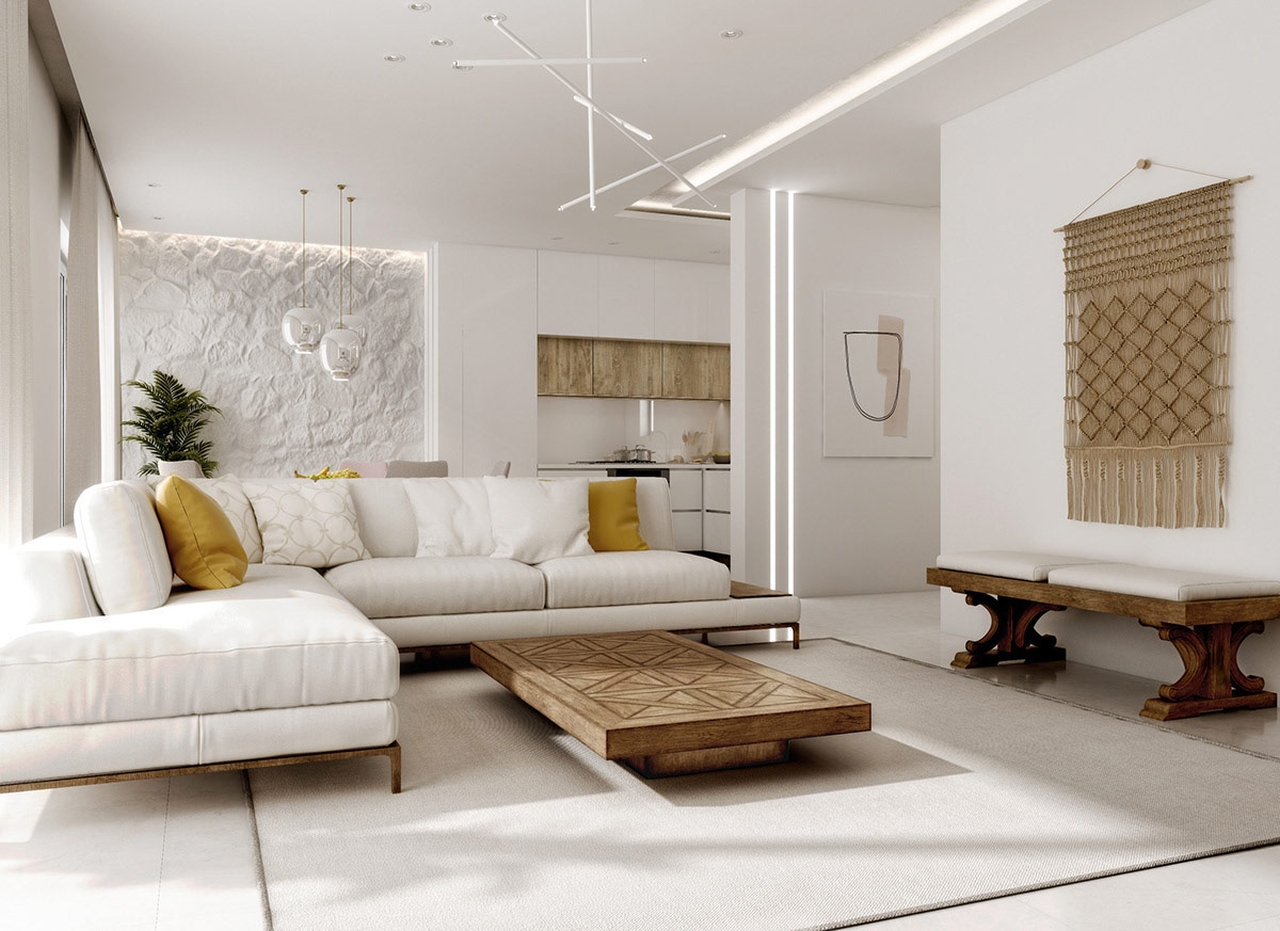
Kế hoạch mặt bằng mở
Kế hoạch mặt bằng mở là một cách tuyệt vời để giải quyết vấn đề không gian bừa bộn trong các ngôi nhà và căn hộ nhỏ. Các xu hướng thiết kế mặt bằng mở và tối giản có thể giúp tạo ra một môi trường chào đón và thoải mái. Xu hướng này giúp làm nổi bật sự đơn giản, ánh sáng tự nhiên và không gian mở.
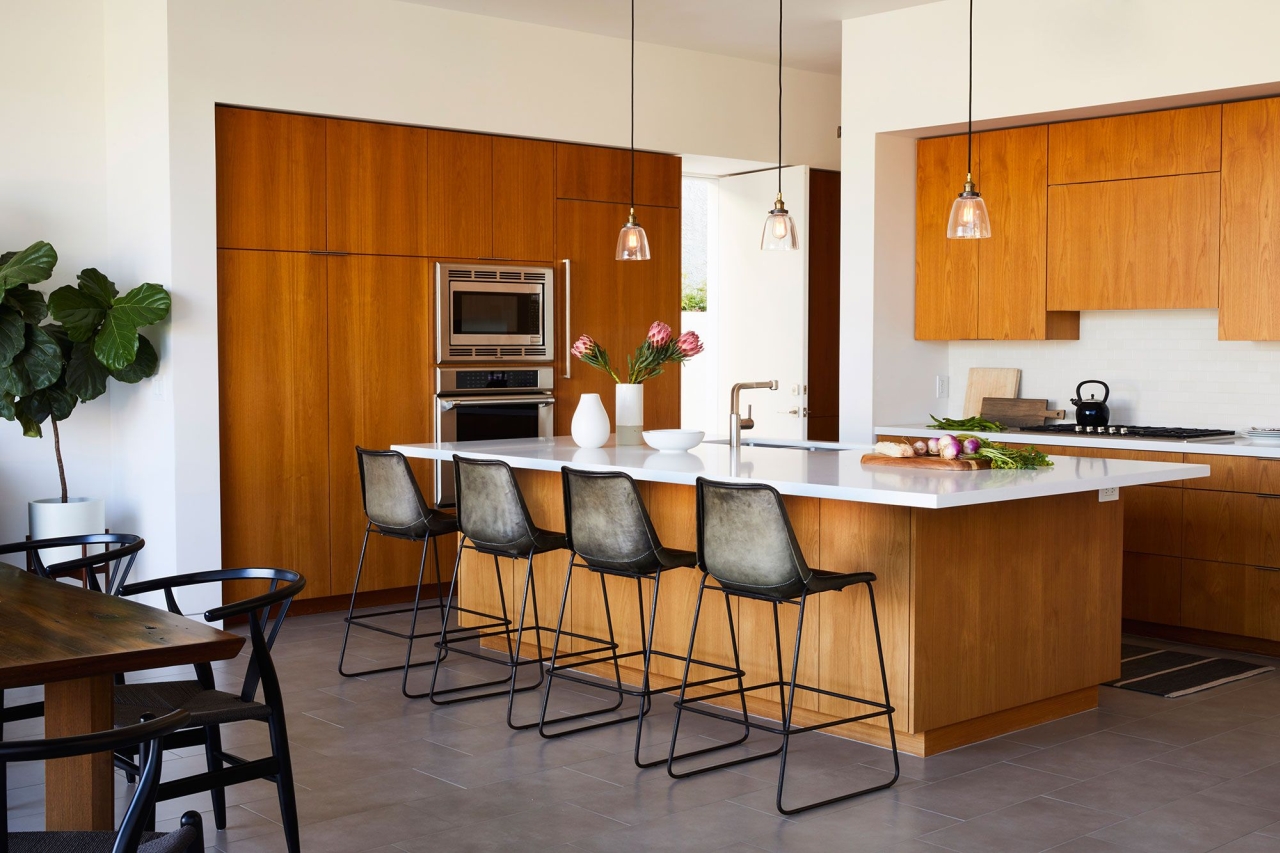
Nội thất khiêm tốn
Phong cách thiết kế nội thất hiện đại là sự đơn giản và khiêm tốn nhất trong các phong cách. Nó sử dụng không gian và vật dụng chức năng, thiết thực để tạo ra một nội thất khiêm tốn. Bạn sẽ không tìm thấy bất kỳ món đồ xa hoa hay lộng lẫy nào trong nội thất hiện đại nếu chúng không có công dụng thực tế.
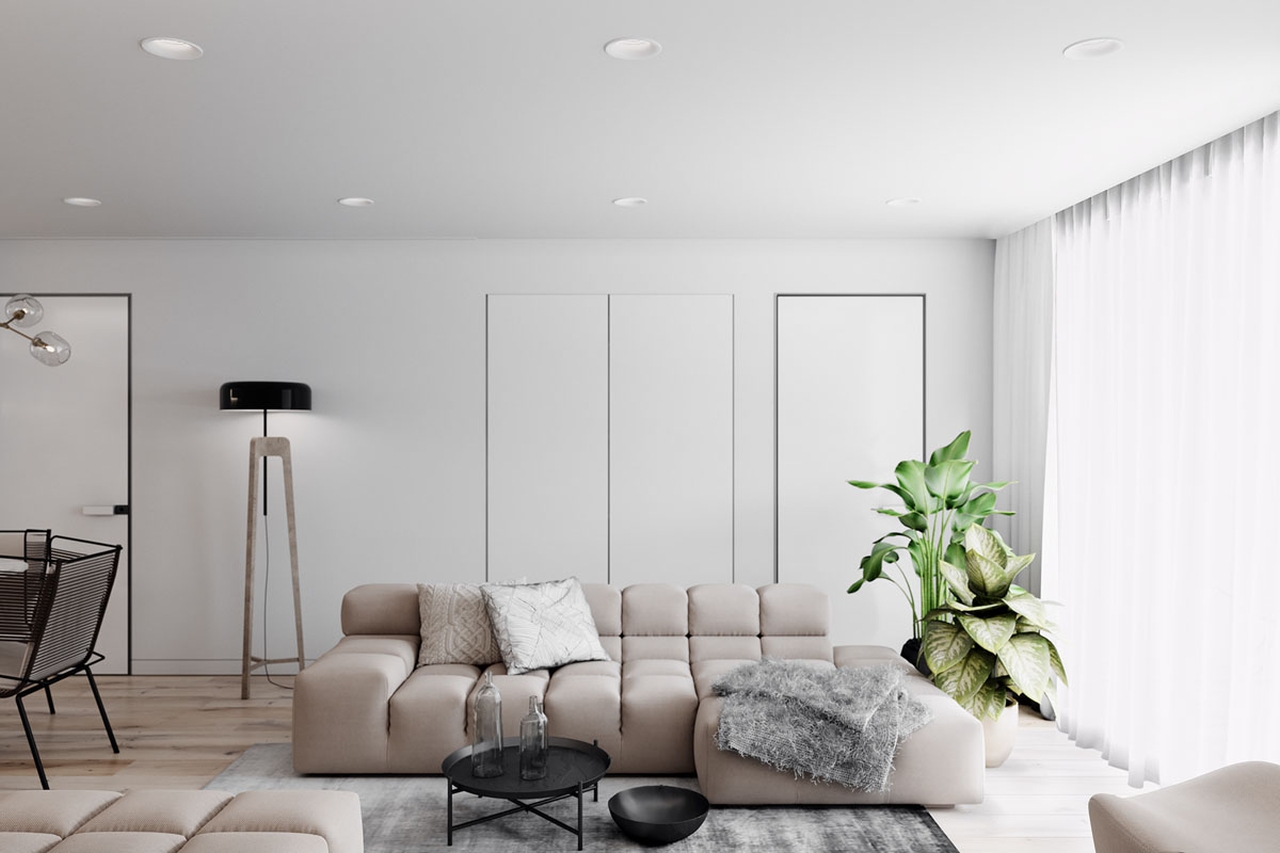
Không gian gọn gàng
Với ưu tiên cho hiệu suất hơn là thời trang, nội thất hiện đại nổi bật với những không gian gọn gàng, ngăn nắp. Một ngôi nhà sạch sẽ và gọn gàng có thể giúp kiểm soát mức độ căng thẳng của bạn trong khi tạo ra một không gian chào đón. Những ngôi nhà hiện đại không có những chi tiết thừa thãi hay đồ vật trang trí thuần túy.
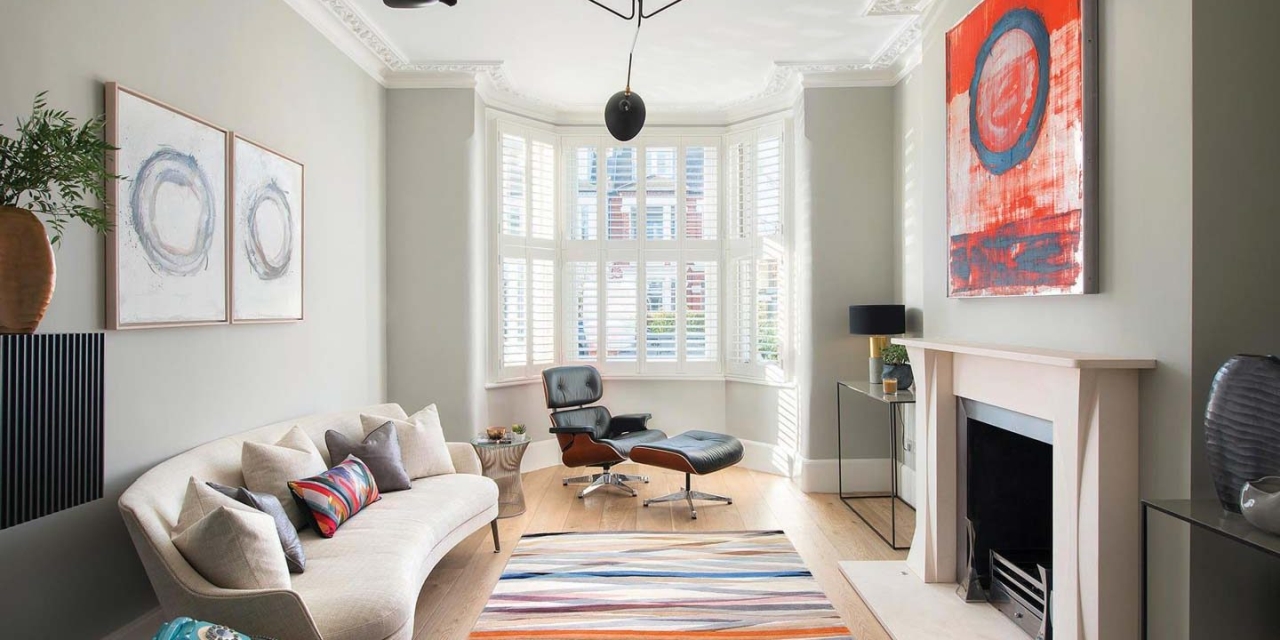
Vật liệu tự nhiên và ánh sáng
Việc sử dụng vật liệu tự nhiên và ánh sáng tự nhiên được khuyến khích trong nội thất hiện đại. Phong cách này áp dụng phương pháp đơn giản, kết hợp những vật liệu mới như bê tông cốt thép và thép, tạo thêm chiều sâu cho phong cách. Gỗ chưa sơn, kim loại, da và các màu đơn sắc thường xuất hiện trong thiết kế hiện đại. Ánh sáng tự nhiên được phép chiếu vào qua nhiều cửa sổ, thường không có trang trí. Điều này mang đến cho không gian cảm giác ấm áp, chào đón và rộng rãi.
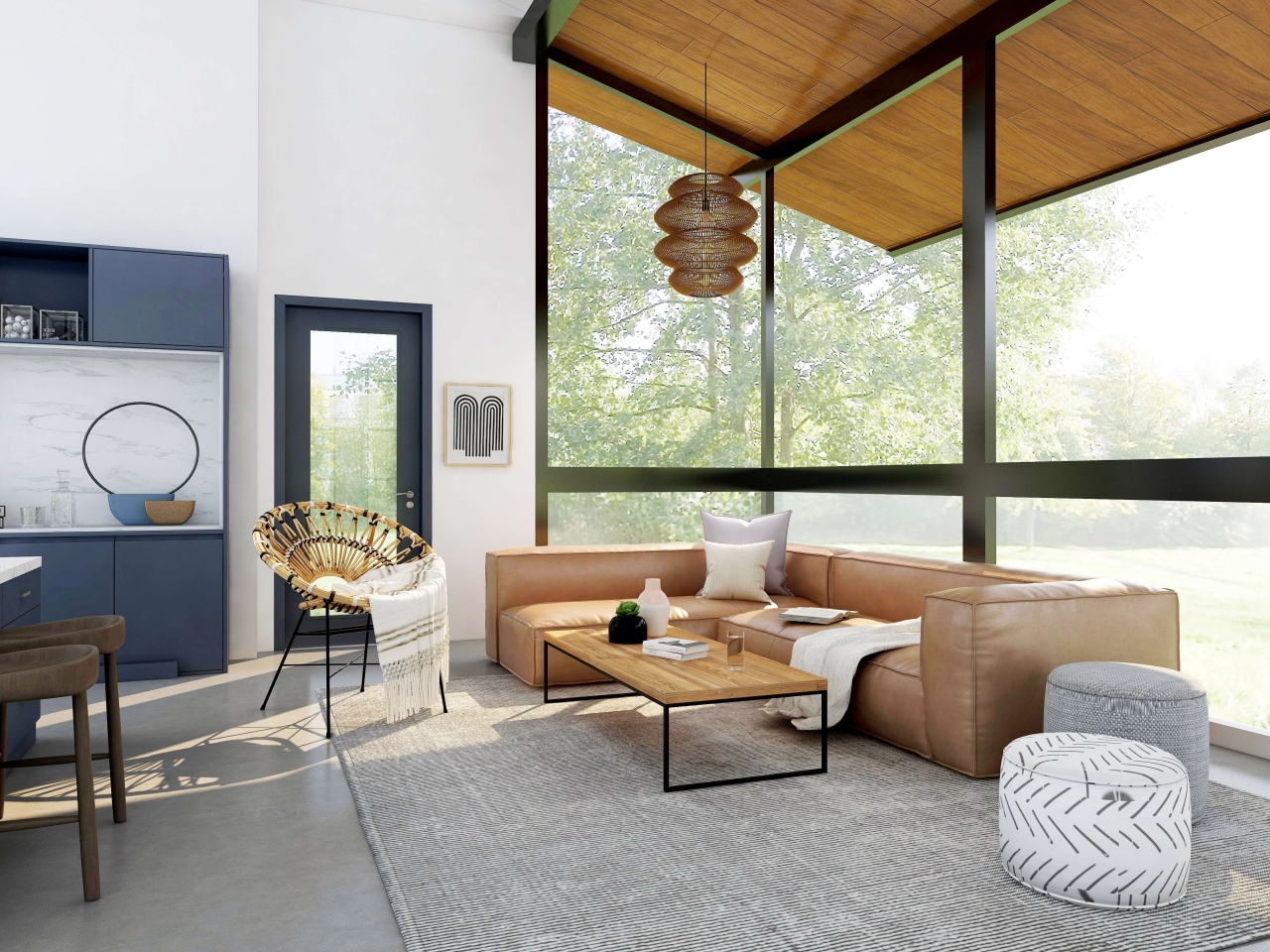
Nội thất khiêm tốn và chức năng
Nội thất hiện đại khiêm tốn và chức năng. Da và vải bọc, veneer gỗ, kính, chrome, thép và bê tông là một số vật liệu hoàn thiện phổ biến cho nội thất hiện đại. Bạn sẽ thấy các món đồ nội thất thấp, nằm ngang với đường nét sạch sẽ trong phong cách hiện đại. Với bề mặt mượt mà và ít trang trí, nội thất hiện đại tuân thủ khẩu hiệu cơ bản của phong cách thiết kế này.
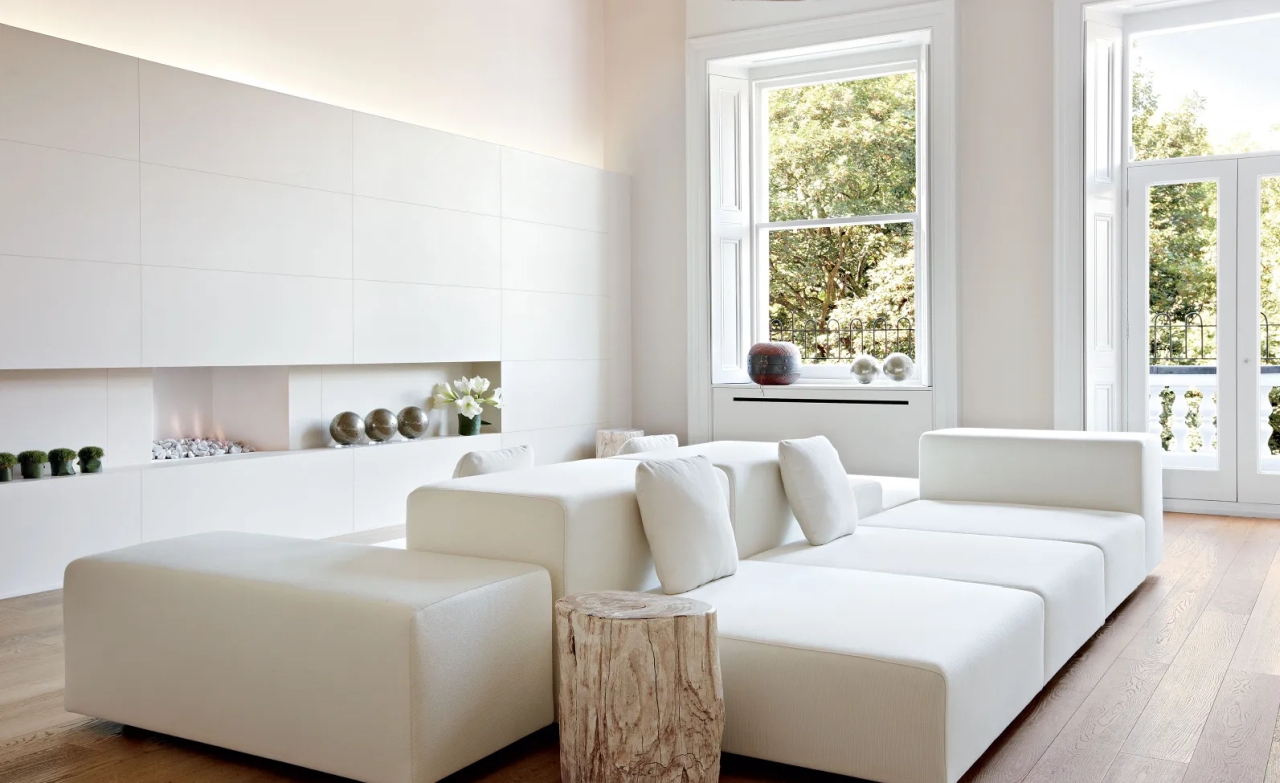
Nghệ thuật hiện đại
Nghệ thuật hiện đại là một trong những cách để đưa phong cách này vào ngôi nhà của bạn. Các nghệ sĩ theo chủ nghĩa hiện đại đã khước từ những phương pháp lý tưởng truyền thống của chủ nghĩa hiện thực. Họ chọn cách tạo ra những tác phẩm nghệ thuật biểu cảm với màu sắc tươi sáng và hình thức độc đáo. Phong cách này nổi bật với nghệ thuật trừu tượng, lập thể và chủ nghĩa Fauvisme để nắm bắt bản chất của góc nhìn hiện đại.
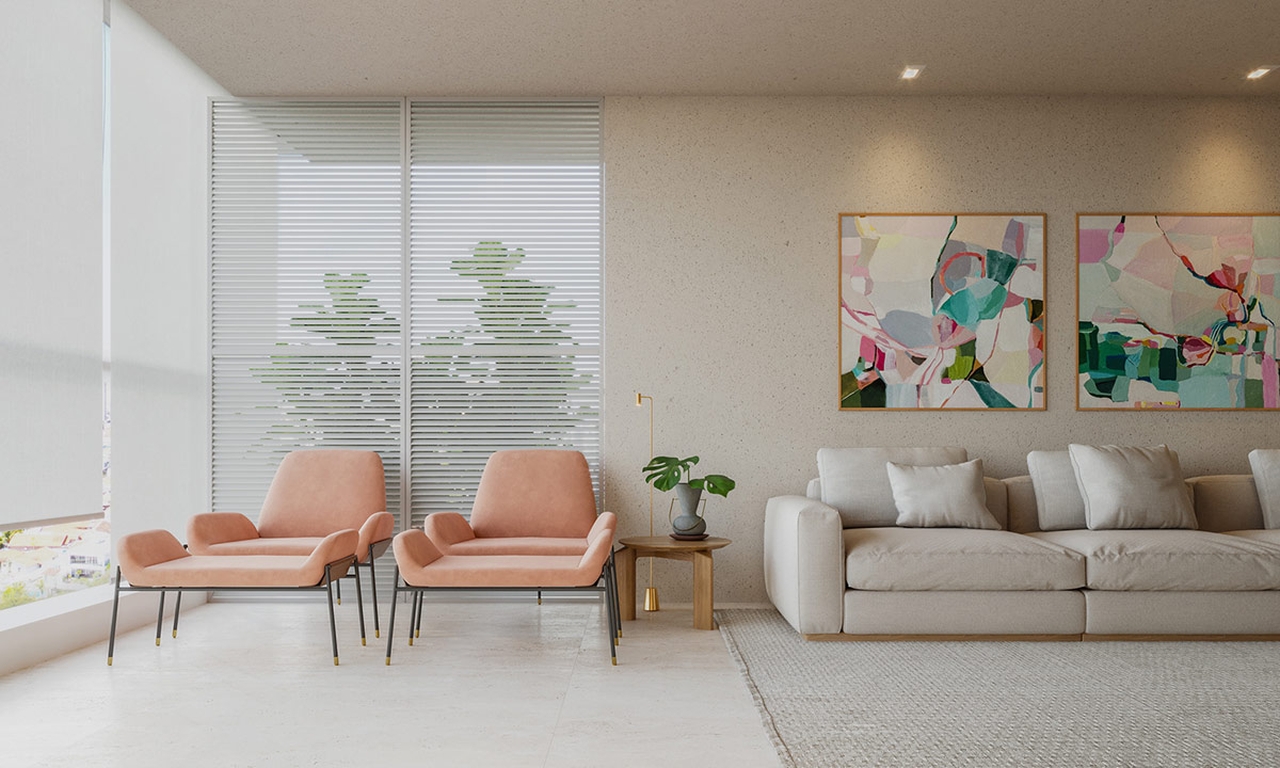
Cách để đạt được phong cách hiện đại đúng cách?
Phong cách thiết kế hiện đại có thể không có một định nghĩa duy nhất, nhưng đây là một phong cách đặc trưng cho nhiều kiểu thiết kế khác nhau. Ra đời từ nhu cầu đơn giản hóa, phong cách hiện đại áp dụng phương pháp tối giản trong trang trí. Có nhiều cách để mang phong cách thiết kế nội thất hiện đại vào ngôi nhà của bạn.
Qua Màu Sắc: Bạn có thể sơn tường với các màu trung tính như xám hoặc kem và kết hợp chúng với các món đồ nội thất tối màu để tạo ra một không gian có độ tương phản cao.
Mặt Bằng Mở: Việc phá bỏ các bức tường phân chia có thể là bước khởi đầu để tạo cảm giác thiết kế hiện đại trong ngôi nhà của bạn. Kế hoạch mặt bằng mở là trung tâm của phong cách này và có thể mang đến những không gian rộng rãi và liên kết với nhau.
Nội Thất Nổi Bật: Những món đồ nội thất biểu tượng như Ghế Eames Lounge, Ghế Barcelona, và Ghế Tulip là một vài ví dụ về phong cách thiết kế này. Hầu hết các món đồ này kết hợp plywood và da, giúp bạn đưa những món nội thất hiện đại nổi bật vào ngôi nhà của mình.
Vật Liệu Tự Nhiên: Vì vật liệu tự nhiên được sử dụng một cách sang trọng trong thiết kế hiện đại, bạn có thể kết hợp chrome đánh bóng, gỗ tự nhiên và da aniline để tạo ra vẻ ngoài mượt mà.
Cảm hứng thiết kế hiện đại
Nếu bạn vẫn chưa chắc chắn về cách áp dụng phong cách hiện đại vào ngôi nhà của mình, đây là một vài cảm hứng nội thất hiện đại tuyệt đẹp cho từng phần trong ngôi nhà. Từ những không gian sống khiêm tốn và ấm cúng đến những món đồ nội thất thanh thoát và thư giãn, những ý tưởng này sẽ giúp bạn đi đúng hướng. Hãy tìm cảm hứng!
Phòng ngủ phong cách thiết kế hiện đại
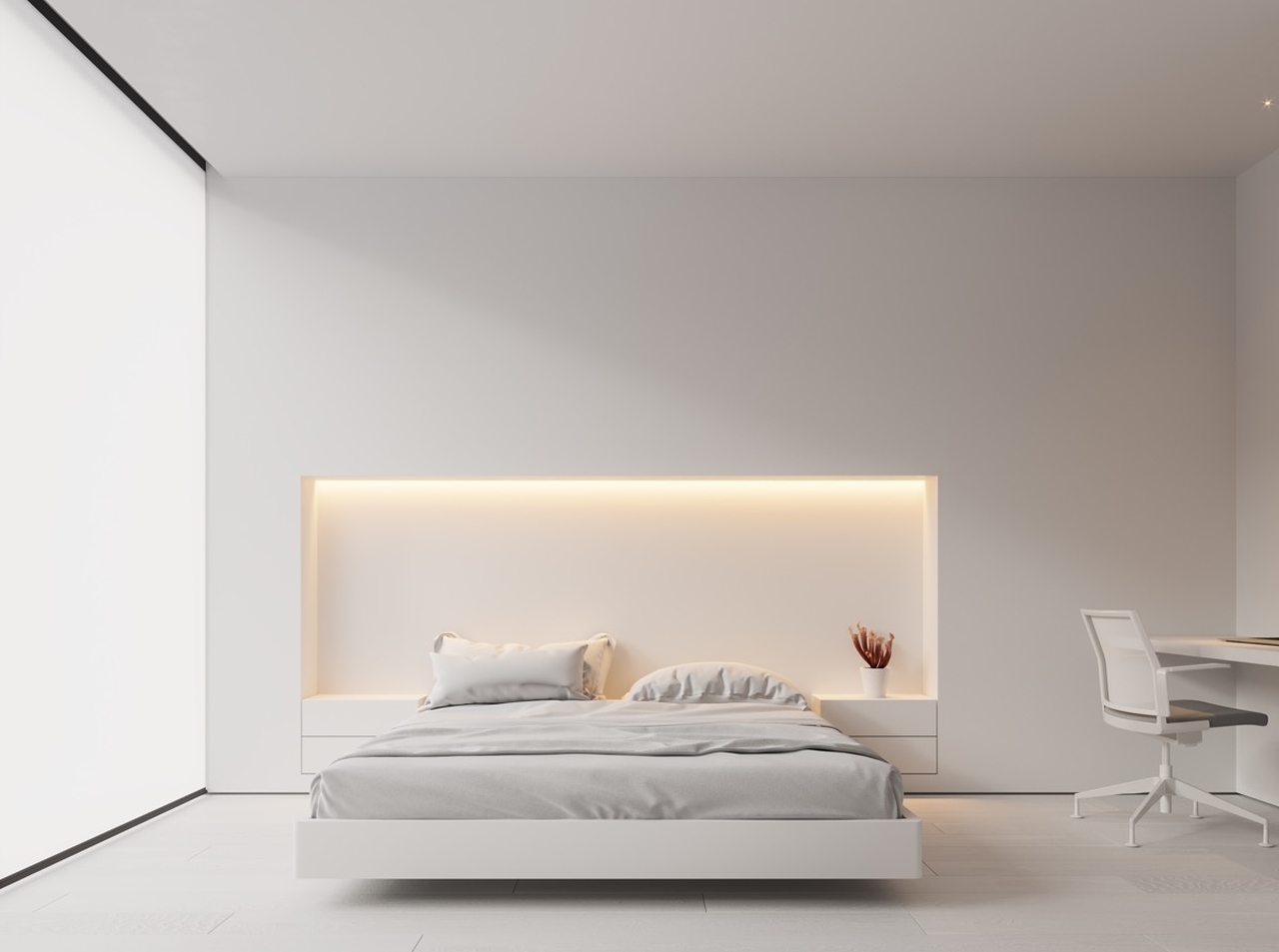
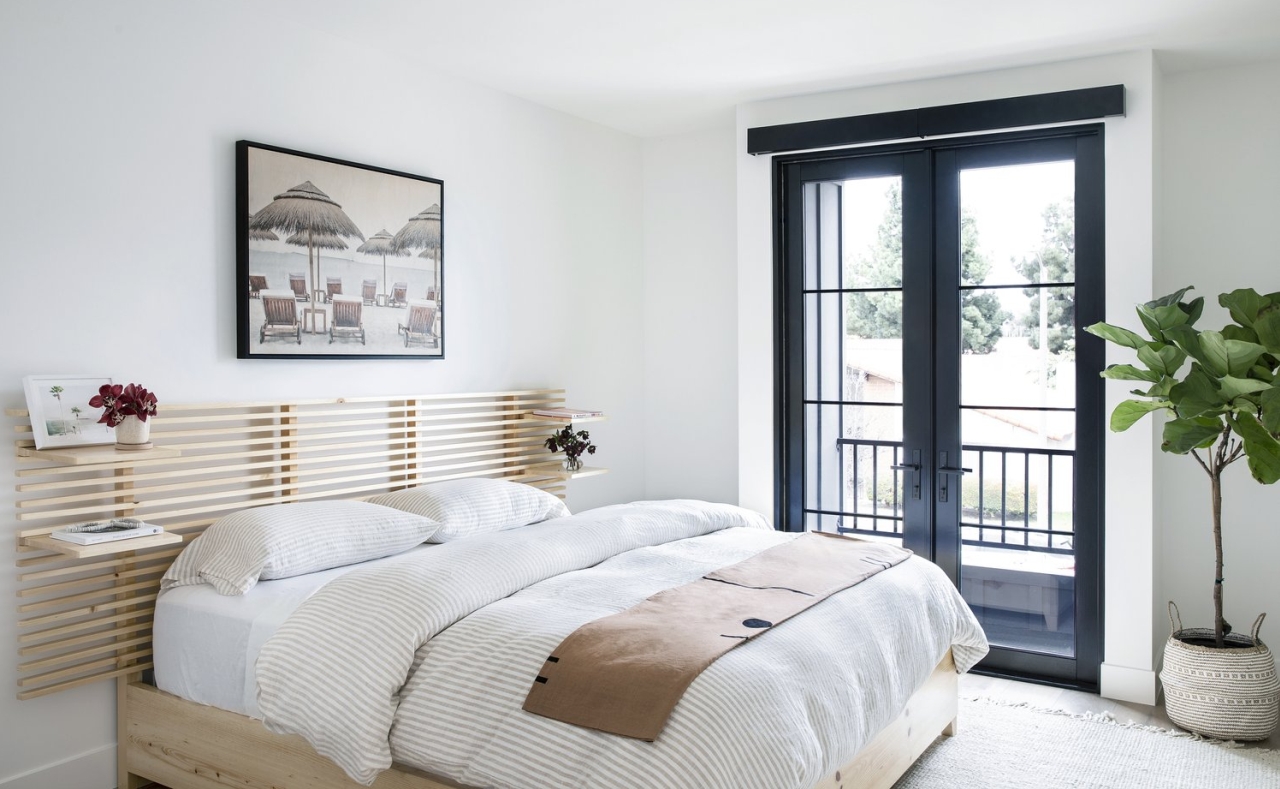
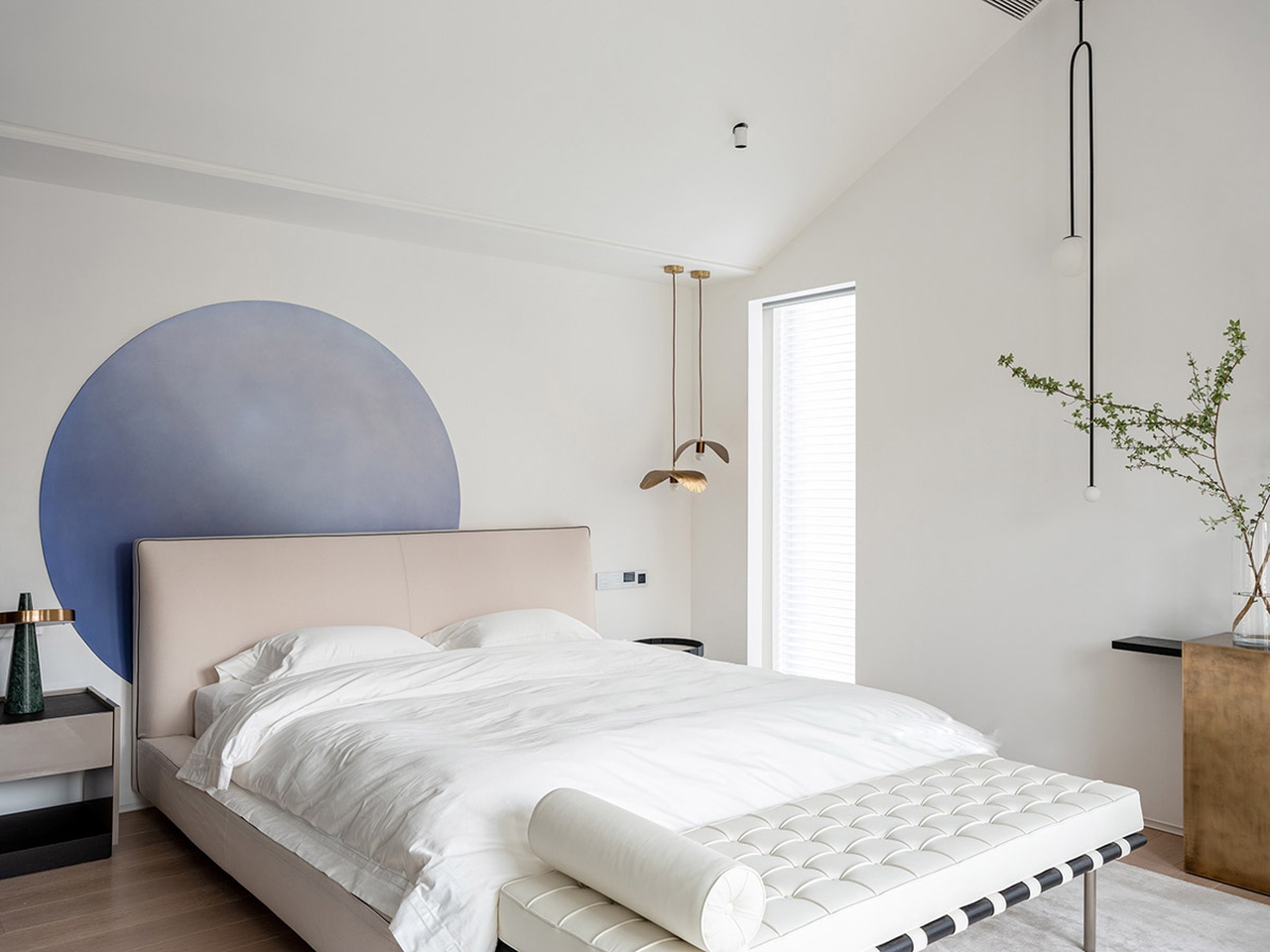
Phòng khách phong cách thiết kế hiện đại
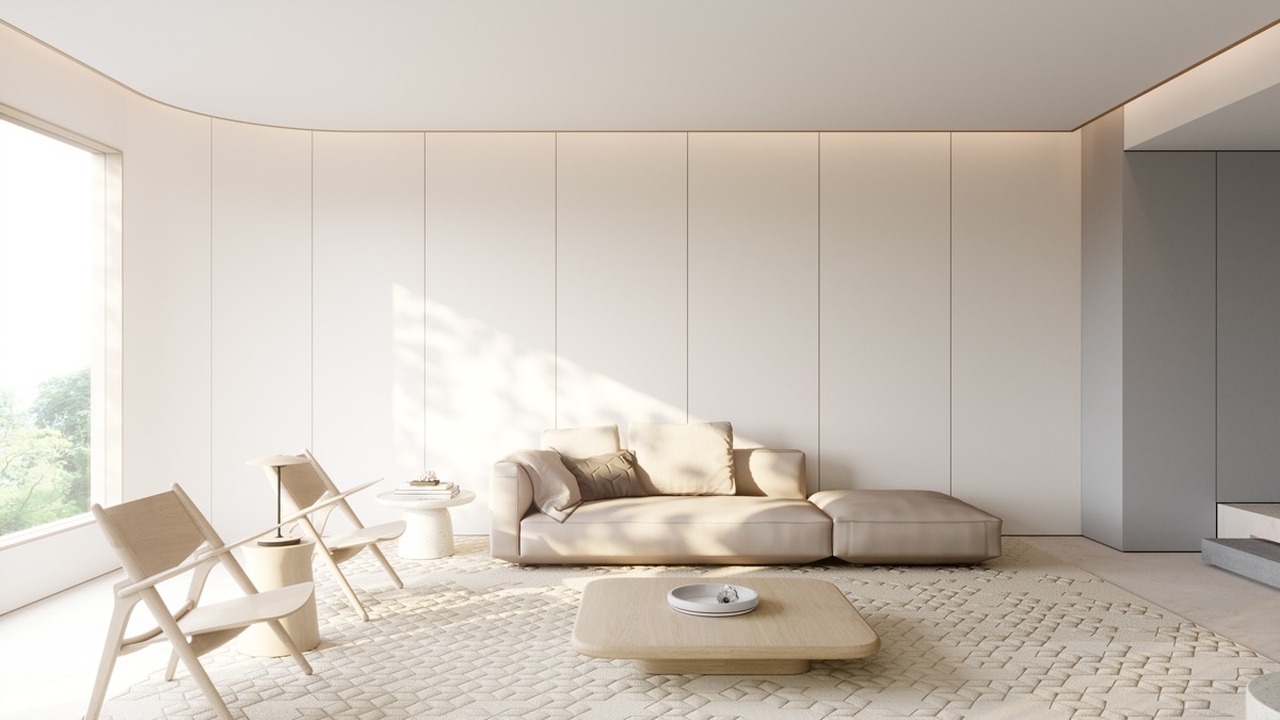
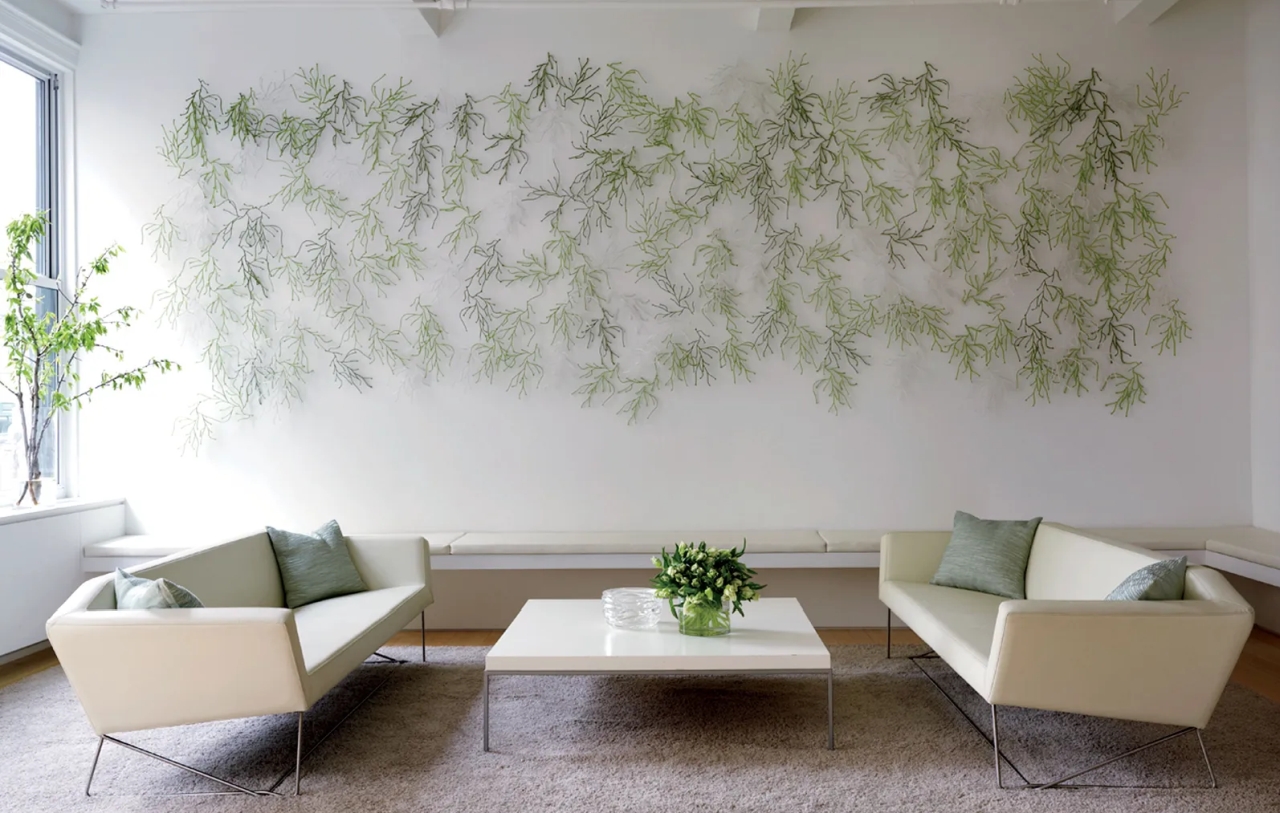
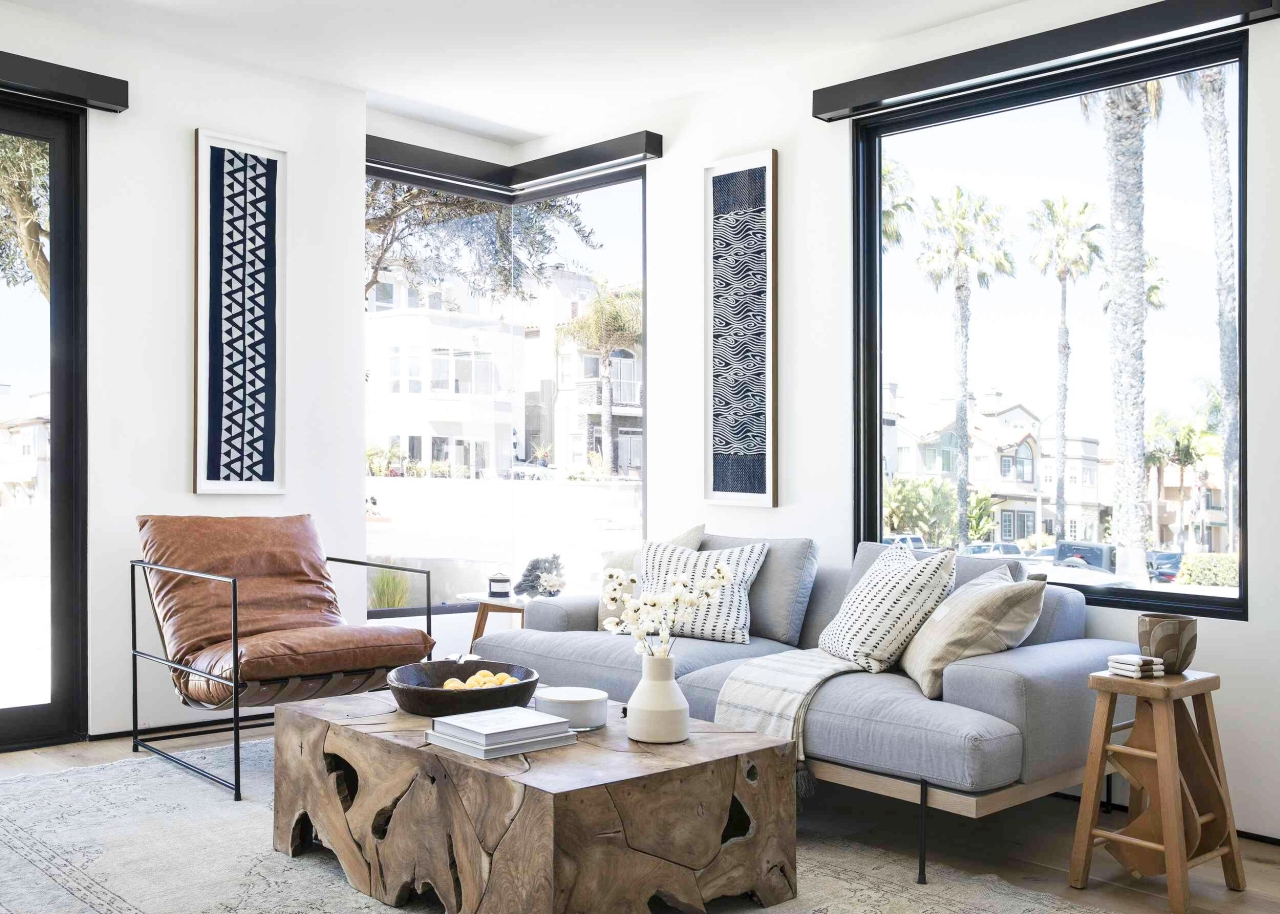
Bếp phong cách thiết kế hiện đại
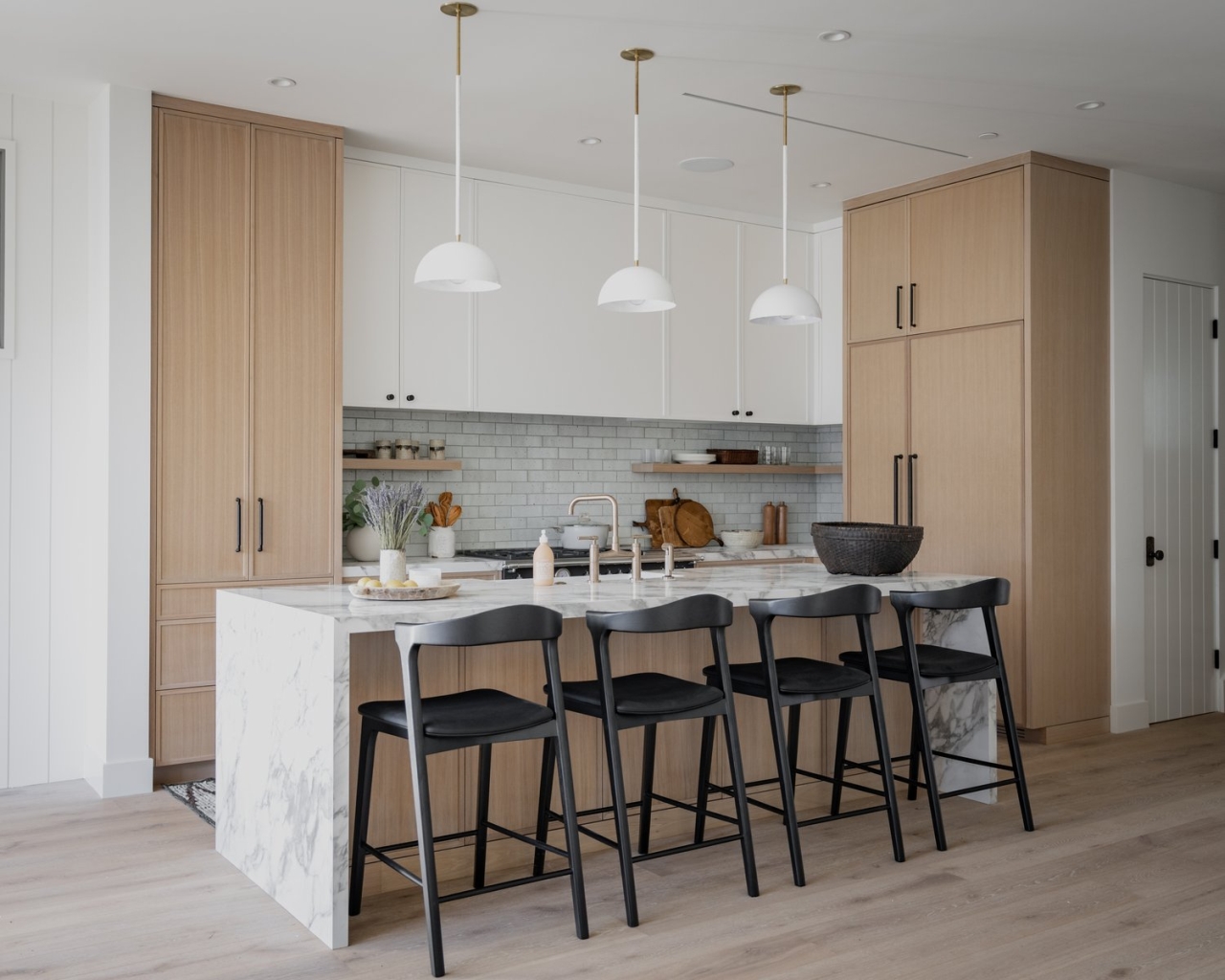
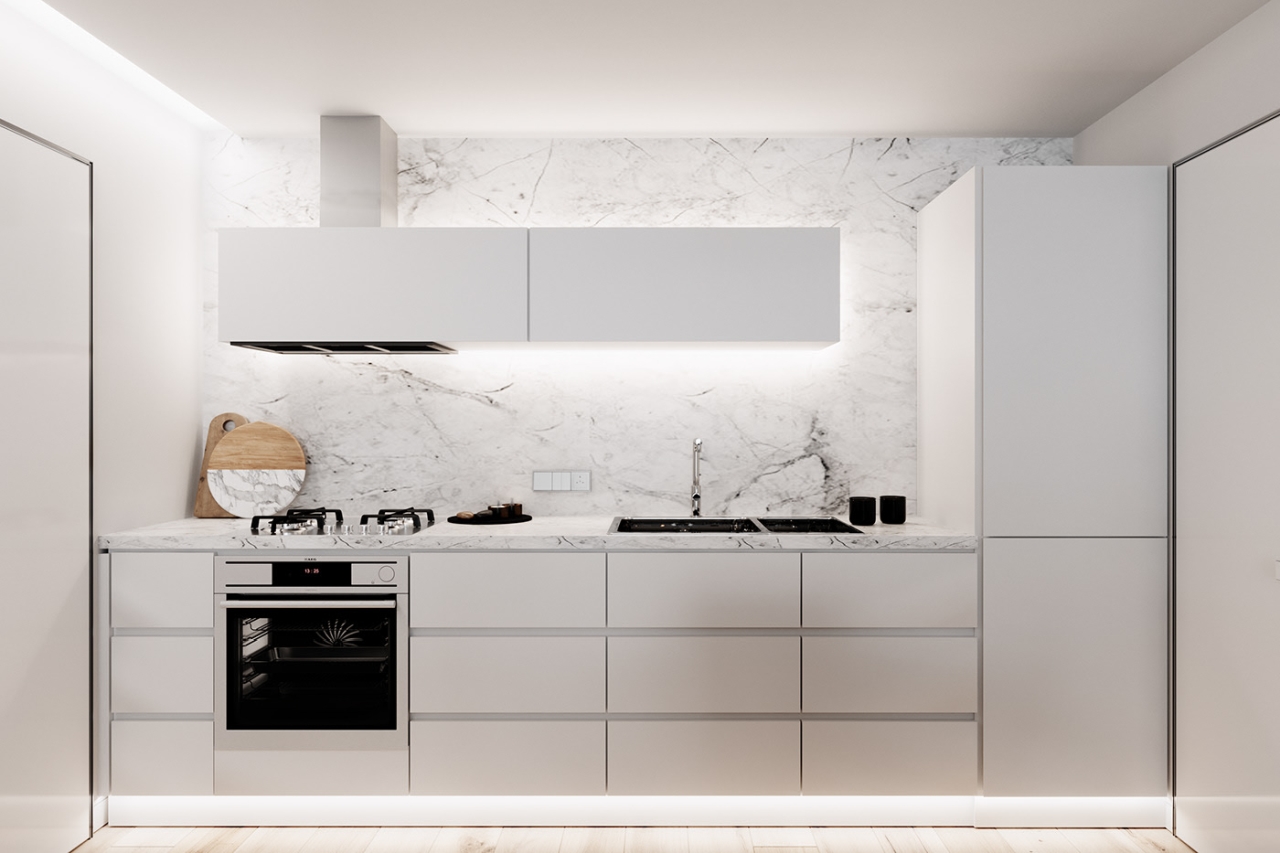
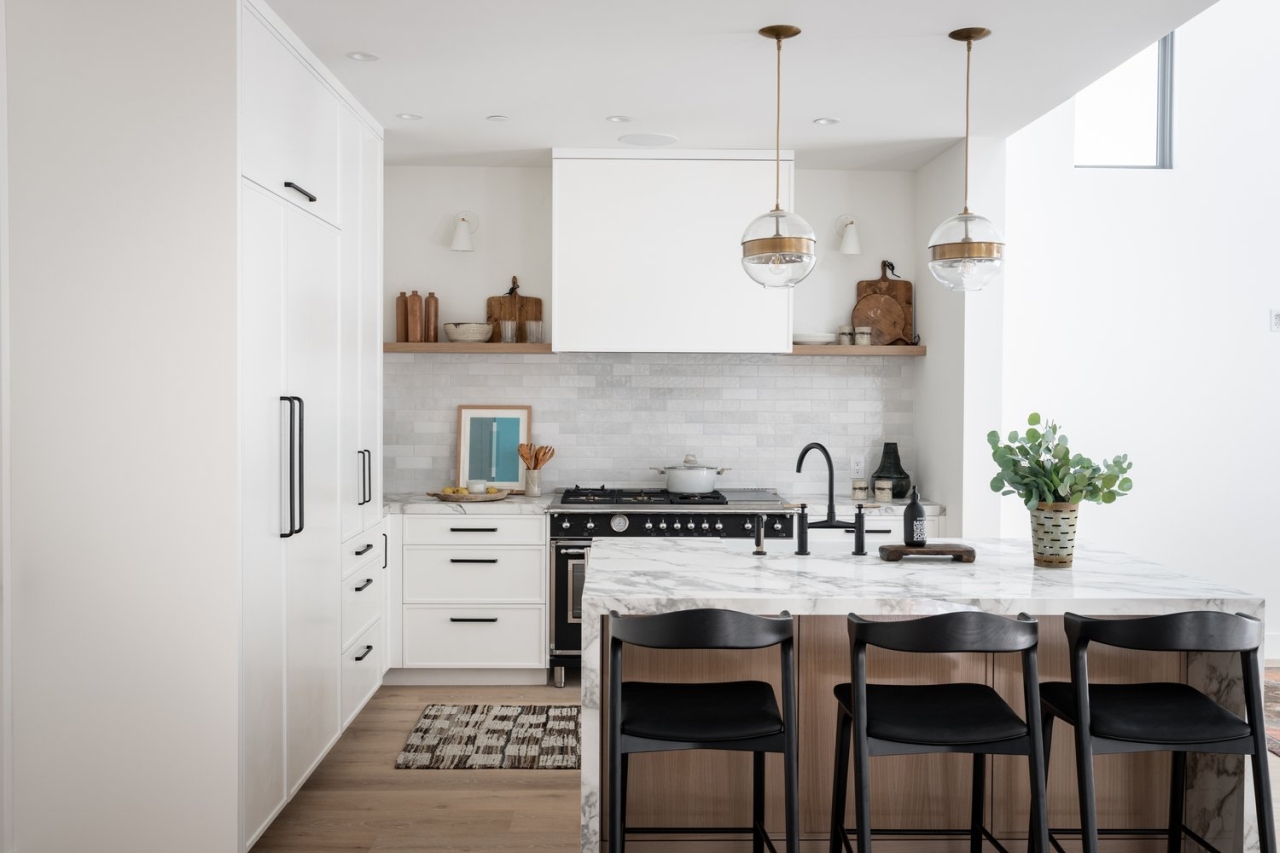
Nội thất phong cách hiện đại
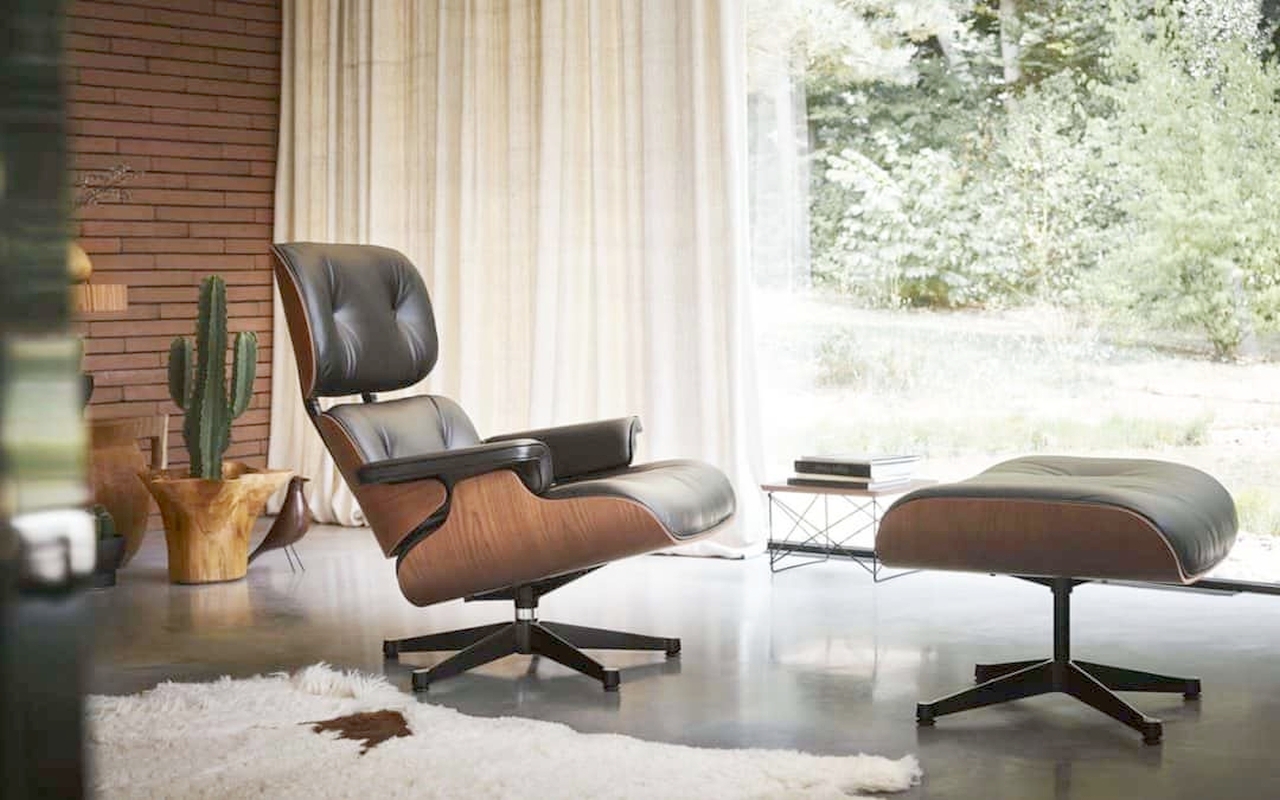
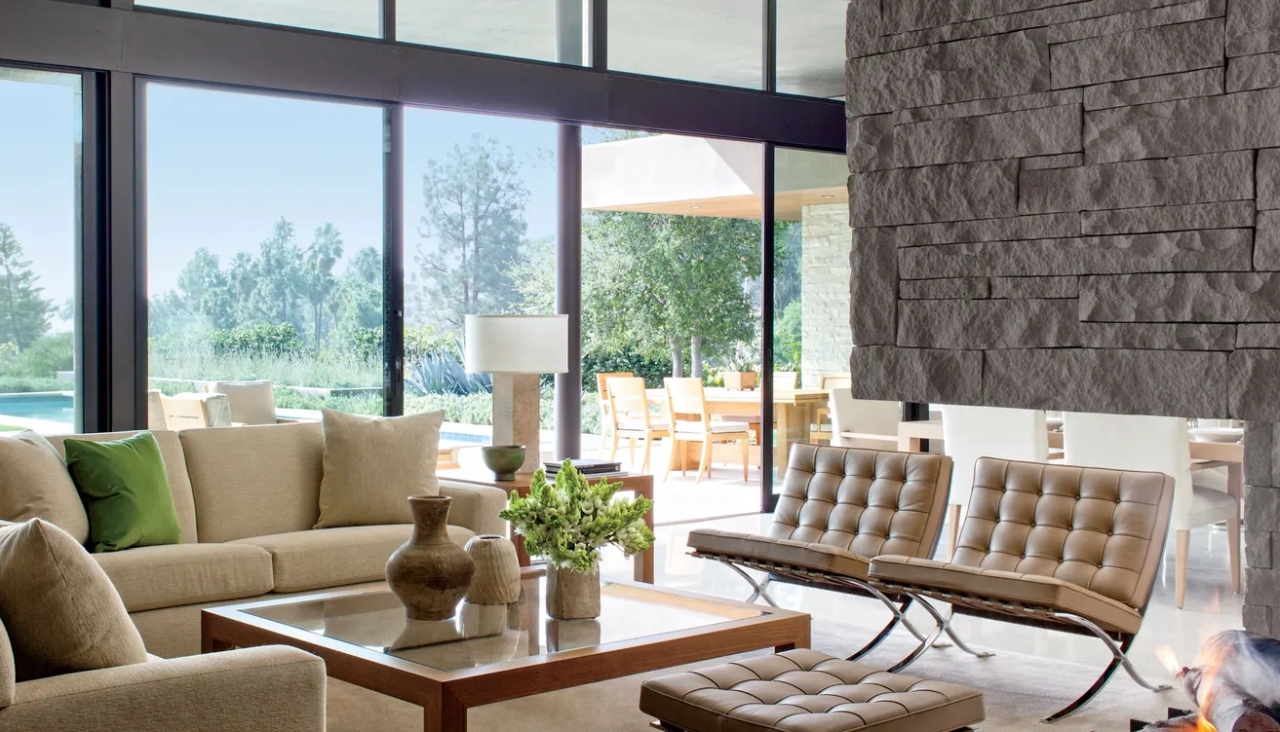
Nghệ thuật phong cách thiết kế hiện đại
